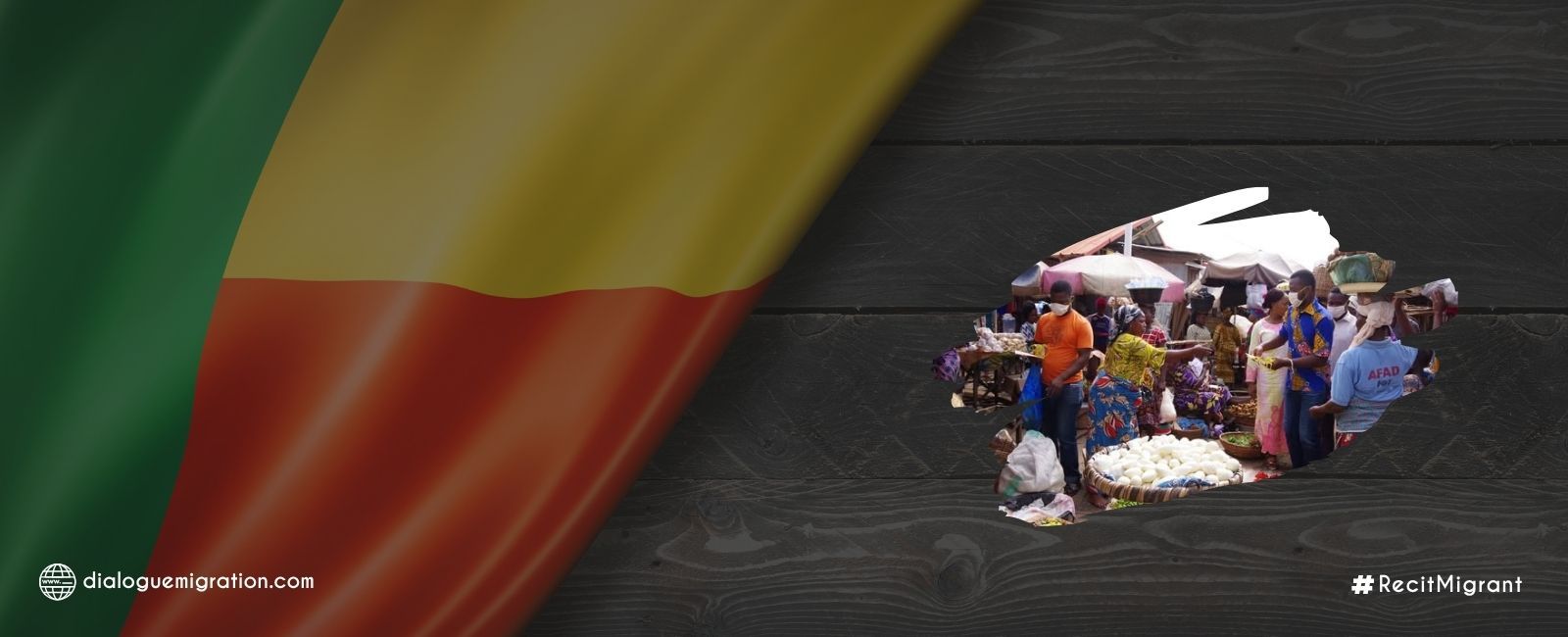

In Porto-Novo, a city located about thirty kilometres from Cotonou, there is a market called Gbègo. Named after the neighbourhood in which it is located – a term meaning ‘rebirth’ in the local Gun language – it is one of the largest markets in Benin’s capital city. Gbègo’s uniqueness extends beyond the goods on display — the vendors themselves are a distinctive feature.
At midday on a September day in 2025, the sun beats down on Porto-Novo. On either side of the main road leading to the market, shops sell everything from electrical appliances to home furnishings and plumbing supplies. As soon as you reach the main entrance, several salespeople rush over, shouting, “What would you like? Come this way; follow me…”
Three communities bring Gbègo to life. According to information gathered and cross-checked, foreigners make up between 5% and 10% of the market population. The largest group are Nigeriens, known locally as Hausa, followed by the Igbo from Nigeria.
The Beninese are renowned for their expertise in repairing electrical appliances, particularly mobile phones and computers. Meanwhile, the Hausa specialise in selling fabrics, shoes, and clothing, while the Igbo focus on electrical appliances such as light bulbs, extension cords, and switches, as well as mobile phones.
“Some of us Beninese are maintenance workers. Some of us also have shops,” says Claudio Zinsou, president of the Beninese merchants. “The Igbo and Hausa are the ones who do the big business. They go to Nigeria. It’s easy for them to travel there and return with goods,” he explains.
Transformation from a community space into a business centre
The area where Gbègo market now stands used to be the fronts of houses before it was converted into a large shopping center. Even today, traces of the former homes are still visible. “Back then, there were sellers of tomatoes and fish, as well as family homes. Over time, the space was allocated to foreigners. Some heirs or their children live abroad, while others left for reasons such as studying,” says Ishola Lalèyè, a Beninese elder. Commonly known as Aladji Ishola, he is one of the caretakers of the market.
Zinsou, in his sixties, recalls: “I used to be at Place Bagnole, and then, we were moved here. That was more than thirty years ago.” Lalèyè notes that the traders were relocated to their current location when a car park was to be built at their former site, known as Alaga (Porto-Novo railway station).
The uniqueness of Gbègo lies not only in the products, which generally come from Nigeria or Cotonou, but also in the diversity of the communities that bring the market to life. Some merchants have spent more than two decades here, marrying Beninese nationals, building homes in Porto-Novo, raising children born there, and learning the local languages.
From the Peacemaker Mechanism to Gbègo
In Gbègo, people from different countries live together in harmony. “There are no problems between the different communities here. We don’t say that this person is Beninese, or that person is this or that,” says Lalèyè.
“If disputes arise, one side must remain reasonable in order to maintain harmony,” explains Zinsou. As the owner of a general store, he sets an example by demonstrating leadership in maintaining peace among his peers from different communities.
He points out that they celebrate together, as is the case with many other associations in the city, which is renowned for its popular festivities.
In addition to the conciliation mechanisms established to settle disputes and remove troublemakers or individuals acting in bad faith, Djafarou Bawa, president of the Nigeriens, the most representative community in the market, also emphasises the importance of business connections.
“Business is what unites us most. Everyone practises their own religion. Sometimes we travel to Cotonou or Nigeria together to purchase goods. Some also go to Niger. When we talk about Benin, Niger and Nigeria, we’re talking about ECOWAS,” he emphasises. In the current geopolitical climate, he hopes that leaders will be able to find common ground.
“We don’t have any problems here. Each community holds a monthly meeting with its president to discuss issues and find solutions,” says Tony Okfar, president of the Igbo community, in an interview with Dialogue Migration.
“Selling the same items often leads to price competition. Otherwise, we don’t really have any particular problems,” he explains.
While they wait for their initiatives to address the issue of touts influencing their business to bear fruit, the Gbègo merchants continue to trade and keep their customers satisfied.
Recently Published
Subscribe to our newsletter!
Quick Links


